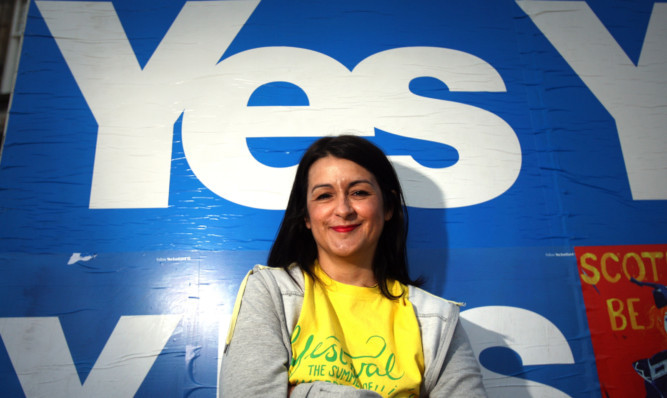One of the most touted explanations for the electoral success of the SNP since 2007 has been the party’s iron internal discipline.
Despite the fact that the Nationalists cannot convince a majority of Scots to back independence, and regardless of the party’s increasingly obvious failure in delivering basic services, the electorate would rather vote for the SNP than any of the alternatives.
With the Holyrood election just a month away, Scottish Labour and Tories are in a battle for second place, having seen the opinion polls and conceded defeat to the separatists.
With Labour’s ideological divisions nationally and the Conservatives bitterly split over Europe, the SNP must appear a model of unity to anyone outside the political bubble.
But all is not what it seems. In the past few months, infighting in several Nationalist branch offices has come to light, with accusations of bullying and even claims of misogyny against party hierarchies. The revelation that some Nationalist activists are thuggishly heavy-handed is not exactly news to anyone who has ever dared to oppose them.
During the 2014 referendum campaign it was par for the course to be attacked online if you expressed views contrary to the secessionist narrative. It remains so, although I can’t vouch for this personally as I no longer read anonymous commentary on social media. In the run-up to the independence ballot, pro-union voters feared putting No posters in their windows and those who did display Better Together billboards saw them defaced on a routine basis.
A few months later, during the 2015 general election, the nationalist bully boys continued their pursuit of those who disagreed with their message. The then Scottish Labour leader Jim Murphy came in for particularly nasty harassment as he campaigned around Scotland. And Labour’s Margaret Curran was not merely harassed but “hunted”, in the words of the heavies intimidating her as she canvassed in her Glasgow East constituency. Her opponent, Natalie McGarry (now suspended from the party), condoned the behaviour, saying Curran was a “fair target for community justice”.
The SNP leadership has never managed to rein in the tactics of some of its more excitable members, and has made only half-hearted attempts to disassociate itself from grassroots boorishness. Now the uglier face of Scottish nationalism is turning in on itself and the vitriol once reserved for the Unionist enemy is being felt within party echelons.
In Fife, former SNP councillor Marie Penman, who ran Kirkcaldy’s Yes campaign in 2014, has left the party over what she described as a culture of aggressive bullying. Open warfare broke out last year apparently when she sought nomination as a Holyrood candidate against the local SNP MSP David Torrance.
Penman said she was the victim of a prolonged hate campaign, was warned to “watch her back”, and was visited at home by Torrance, allegations which he has denied.
Another Fife councillor, Bill Brown, told the Courier that he left the party last year for similar reasons.He said: “For a number of years the SNP councillors have had a controlling clique. I have heard them referred to as the ‘Glenrothes Mafia’. Those not in the clique are talked over at meetings, ridiculed in words and actions and whenever they volunteer to go on groups or committees, other members are supported to stop the ‘useless’ members going forward.”
In the Highlands, too, there has been rancour in the SNP ranks, with one Oban councillor resigning from Argyll and Bute Council and another withdrawing from the party’s group citing “irreconcilable differences”.
The SNP has also been plagued recently by race rows in its constituency parties in Dundee, Dumfries and in North Lanarkshire, the latter resulting in the SNP suspending its Coatbridge branch until after the May election.
This followed scenes of mayhem, with members reportedly “shouting abusive language at the chair”.
Nationalists hurling venom at each other is good news, of course, for the Unionist cause, a sure sign that the once harmonious Yes movement is unravelling at the seams.
The independence supporting newspaper The National reported that the Lanarkshire disputes are seemingly between the old guard and members who have joined more recently, and maybe this tension is behind the other scraps as well.
In Westminster, rookie Nationalists MPs have wasted no time in giving their party a bad name, over questionable business dealings and expenses probes.
The impression is of unruly incompetents pursuing their own agendas, a world removed from the tight ship Nicola Sturgeon professes to captain. For a party that has traded on its united stand against a common foe (the UK), this catalogue of civil strife is potentially damaging.
It may, if it continues, even do for the SNP what the opposition parties have failed to do, perhaps not yet but one day. Fingers crossed.
